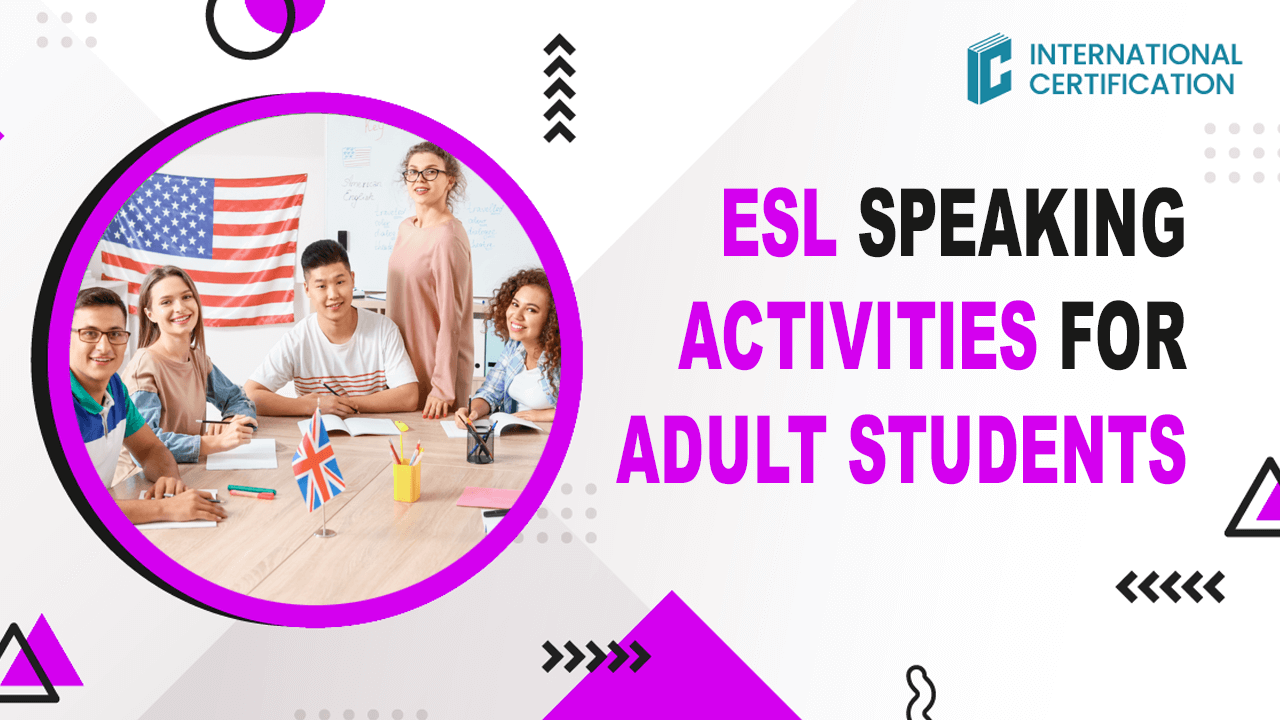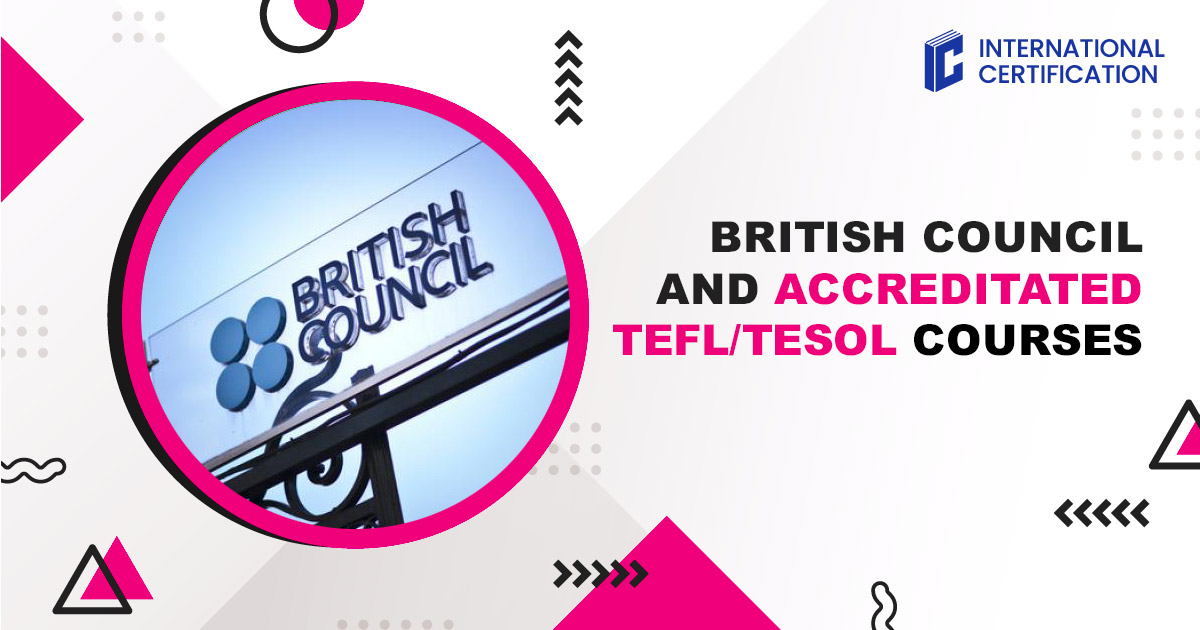And start earning money 💸 by teaching English in your own country, abroad, or online from anywhere on the planet! 🎁 Gifts and bonuses: professional support from your personal coach 🧑🏫 and job placement assistant 💼.
Table of contents
Whether you teach English people in a classroom or on Zoom, you should have some engaging and entertaining exercises up your sleeve. Playing games is a necessary part of language lessons to connect previous and current topics, and make the learning process smoother. Language acquisition takes concentration, which might stress some people. We need something to encourage them to use English provoking particular knowledge at the same time.
It isn't so easy to choose appropriate activities for teenagers or adult learners. There are fat chances that they will willingly start singing or playing "Crocodile" as children. Use fillers between important exercises and help to relax for a short time. Firstly, understand the reason of a speaking activity, what skill is supposed to be trained. Even speaking activities may base on certain directions such as reading, listening, vocabulary, and grammar. We prepared some light-hearted ideas, which are sorted in terms of training skills. You may use them teaching online and personally.
Video
Vocabulary review games for adult ESL students
One of the most difficult problems that English learners face is memorizing vocabulary. Not only is it hard to remember new collocations but also to use them freely in speaking. It takes at least 15 times to come across a new word in order to remember it. That is why ESL tutors come up with different situations, which provoke particular vocabulary. The more ways we suggest using learned words, the sooner students start producing them independently.
Most games don't require long preparation, so you can use them at any time. Moreover, all of them are flexible, just adapt rules depending on a level and a topic. Such activities are funny enough to make students laugh and compete. They are quite popular, so it is likely that learners have already played something like that in their mother tongue.
Alias
There is a quite popular board game among teenagers and adults. You can either buy cards or find an online version. The second option is flexible because if you have an online classroom, you can do such cards on your own. For example, if you have already taught food or colors, you should make such cards with appropriate words from the previous topic.
The rules are pretty simple and fit even beginners to review new words from the last session. A student takes a card and explains the word or phrase, that he sees on it. The thing is to explain words on cards with synonyms or antonyms. Pre-Intermediate students can even describe situations, which relate to phrases. That student, who guessed the word is the next speaker.
Charades
This vocabulary game works in a different way in comparison with Alias. Give a card with a word to a student. While he is showing the word from the card, his classmates are trying to guess what he is displaying. They should pronounce all options that relate to the topic. The point is learners have to remember all words from the last lesson. In this case, they don't need to look for synonyms or antonyms to explain the word, they have to find certain. It fits lower-level students to have fun and recall such vocabulary as animals, jobs, routine, and hobbies.
Taboo
There is a fun ESL practice, which helps to master paraphrasing. You can choose a topic such as relationship. Students take turns one by one, having cards with a word they need to explain and a taboo word, which they mustn't pronounce during their explanation. For example, the word is «love» but you can not say «people, person» because they are taboo. It might seem difficult at the first sight, but everyone will love it. Such an exercise provokes using collocations, phrasal verbs, and even idioms. It fits perfectly everyone from Intermediate to Advanced.
Password
There is a fun activity for beginners. It reminds another game, which is called Association. Pair your students up or divide them into small groups. One representative from each team thinks of a password for his secret file and gives others a hint to guess what it is. The mission of others is to name all words, which pop in their minds in order to win. The team, which guessed most of words, is the winner. The amount of words depends on how much time you set to play.
Scattergories
It seems to look like a vocabulary mind-map. Depending on the topic that students have learned recently, you determine how many categories will be. For instance, the last lesson was devoted to animals, there are two branches of it, wild and farm animals. Divide people into two teams and assign them to write down as many words as they can to fill in each category. The rule is to play against the clock. Despite players are adults, they will have fun.
Grammar oriented ESL activities for adults
Drilling exercises are important in order to excel. However, it may lead to a problem of using it appropriately in a speech. That is why a lot of Intermediate learners get stuck. They know conditionals and even Past Perfect, but when it comes to speaking, they do everything in order to avoid these tenses. Teachers' mission, in this case, is to show how many situations require using such grammar and help to use it changing the context. And a game helps to spark a feeling of competition. It works well, especially in groups, when people are in the process of gaining points. But if you teach individually, it looks good as well, because students have a chance to share some fun facts about their life and use their imagination.
Usually, such activities don't imply the teacher's comments and corrections. Just observe and take some notes, what was the most difficult in a task. After it, you may draw students' attention to their mistakes. But don't say names of people, who made them. When it comes to making mistakes and getting feedback, people tend to take advice to heart. We don't want to upset them. Just highlight common mistakes and ask to explain them to each other.
Alibi
This activity fits perfectly a lot of topics such as crimes, Past Simple, and Past Continuous. You need to prepare a situation to describe what happened. There is a role-play where some students are police while others are suspects. That is a good way to train coherence and understanding. One group should brainstorm to come up with appropriate and grammatically right questions, which another group will answer. If you have no time to prepare, there are a lot of templates of this game on the Internet. It suits all levels.
Never Have I ever
There is no way you haven't watched The Ellen show. However, we should change rules to train grammar point. Instead of providing an example of a life situation, you should assign your students to do that using Present Perfect tense. Each student has 3 attempts to keep playing. For example, the first student says what he has never done, and those people, who have done it, lose one attempt. People get out of the game when they have no attempts. Pre-Intermediate and Intermediate learners will love it. It is a kind of ice-breaker, which helps to get to know each other.
Interview Pop
Another way to check knowledge is having an interview. Ask adults to choose a person they admire. They should write down ten questions about what they would like to know about him. The advantage of this activity is flexibility. You can simplify it for Elementary students, giving hints to use question words such as what, where, why, when. Write down 3 or 4 recent grammar rules, which they learned. It means, they must use those structures to make questions. Then pair students up, and each student answers the questions he wrote, assuming the person, he was planning to interview.
Jeopardy
That is free practice, where a teacher sets the rules. You can choose 3-5 topics or tenses, which you've recently taught. Here you let participants choose any topic to start with. Each question or task that relates to the covered topic is worth some points. And a player answers right to get them. A person with the most amount of points will win. The more difficult question is, the more points a participant gets.
Guess who or what I am
Players should choose a favorite actor, singer, or movie character, which all classmates are likely to know. They have to question each other, one by one, in order to guess who or what the person is. They ask different yes or no questions, depending on how many grammar structures they know. The winner is the learner, who understood an imaginative personality for the least amount of questions.
Would you rather…
That is a brilliant idea on how to practice the second conditional. Provide some situations and options like, «Would you rather be a happy homeless or a miserable millionaire», or «Would you rather have a cat or a dog?» Make up any examples, depending on vocabulary knowledge of your class. They paraphrase examples using the second conditional explaining their choice. For instance, «If I were a wealthy person, I wouldn't be miserable». Let adults speak up helping them if they need.
Conversation games for adult ESL learners
💡 Unlock the secrets to doubling your teaching income with our exclusive checklist! 🎯 This checklist is designed for English teachers who want to 📈 attract more students and 🔥 keep them engaged for the long term.
These activities are supposed to encourage students to speak paying attention to fluency rather than grammar. We know how learning rules may become boring. It takes time and effort to use tenses right in speaking. Such speech is prepared. That is why we need to provide some typical life situations, where people can demonstrate their ability to talk spontaneously and be proud of themselves. It must relate to their interests and language goals. For example, an activity to solve a conflict situation with a client fits Business English students rather than General ones.
There are different ways, where you can get relevant ideas for materials. Use social media platforms such as Instagram, Facebook, or TikTok. Also, YouTube is a wonderful tool to find original TV or game shows. When it comes to responsibilities, teachers shouldn't interrupt a speaker in order to correct or paraphrase. The significant thing here is fluency, so, listen to a speech and take some notes, where they stumble over. Usually, it works with higher-level students, because they have enough knowledge to keep the speech going. However, it isn't outlawed to try to conduct such things with even Elementary. It may help them to see the real meaning of the language in life.
Box of lies
That is a decent way to check whether a class speaks English without preparation. A class has a minute to describe a picture, which you prepared beforehand. However, they have an option, they can either depict an illustration precisely or lie and tell about everything they want. Whatever a player has chosen, other participants listen to him for one minute and then decide, whether he told the truth or lied. The more imaginary pictures are, the funnier the game is.
Just a minute
It is similar to the previous activity and quite popular for exam preparation courses. Teachers often use it with Advanced learners to quickly review and check two things, language fluency, and vocabulary knowledge. Imagine, you have taught health and medicine last week. Prepare some questions to check how many words a person remembers and how quickly he answers. While a student is talking for a minute, the teacher and classmates mustn't interrupt him. You can listen to all participants, and provide feedback at the end of the activity to mention common mistakes.
Video Talk
That is a way how you can combine listening and speaking practice. Choose a relevant video on YouTube and prepare preview and discussion questions, which will make a class think of something and skip to content. Then talk about the topic using post-watching questions to check listening comprehension. Highlight keywords to help learners to come up with answers. Usually, it works with higher-level students to expand vocabulary.
Debating club
When you teach linking words, you can show your learners how it works in practice. Choose some controversial topics about money, health, environment, or love, and prepare some opposite statements for each category. For example, «money makes people happy» or «zoos should be banned». Then pair participants up and give your students cards with the assignment. One player agrees with the statement, another disagrees. Both should provide examples and explain their opinion using linking words to sound polite.
🚀 More students, 💰 higher income, 🌍 complete freedom! ✅ 112 verified platforms with top rates ⏳ Flexible schedule – work whenever and as much as you want 🎯 Simple requirements – start earning right away 💎 Boost your career and income by teaching students worldwide!
Dictation
A good way to combine many skills at once, listening, reading, and writing. Adapt it depending on the level. Choose an appropriate text and pair students up. Assign one team member to read and memorize the text to retell it to his partner. The partner is supposed to write down what he has heard. This is a kind of pronunciation game. The pair, which restore the story precisely is the winner.
Conclusion
There are great ESL ways of teaching. That is important to understand that even older students don't mind letting their hair down. Teaching requires not only professional knowledge about grammar, reading, and writing. It implies understanding of learners' feelings and possible mistakes. A knack for languages is a daunting and energy-consuming thing. That is our duty to make it as enjoyable as possible. Find spark and motivation in learners' eyes to take into account and use as a game. Let your young adults show their speaking skills in a spontaneous way. While they are thinking that it is just a way to have fun, you have a chance to observe and take notes regarding their struggle and mistakes.
If you don't feel confident to adapt a course program or conduct appropriate things when it is necessary, you should improve your teaching skills. Thanks to an online TEFL/TESOL course you have an opportunity to know how to make lesson plans easily and adapt them depending on your class. Also, you'll get feedback about your lessons from a native speaker trainer. Go to our homepage to purchase the course at a 50% discount.
We hope you found this article useful and valuable. Remember, practice makes perfect. Use these games in your lessons as soon as possible to check students' positive reactions. Feel free to leave comments below if you have some questions about teaching.
Terms used:
ESL, TEFL, TESOL

York Fern
An English instructor with 12+ years of experience. I work for an online school and travel the world, teaching students from various countries, leveraging my TEFL/TESOL certification. Seeing the world's oceans, mountains, and cities with my own eyes has given me a profound appreciation for the importance of quality education and international communication.
and start earning by teaching English in your country, abroad, or online from anywhere in the world! Order the course with a 50% discount 💸 and receive as a gift the support of a personal coach 👨🏫 and job placement assistant! 🎁🚀 Hurry, limited spots available! 🏃♂️💨
💡 Unlock the secrets to doubling your teaching income with our exclusive checklist! 🎯 This checklist is designed for English teachers who want to 📈 attract more students and 🔥 keep them engaged for the long term.
🚀 More students, 💰 higher income, 🌍 complete freedom! ✅ 112 verified platforms with top rates ⏳ Flexible schedule – work whenever and as much as you want 🎯 Simple requirements – start earning right away 💎 Boost your career and income by teaching students worldwide!
choose us?




